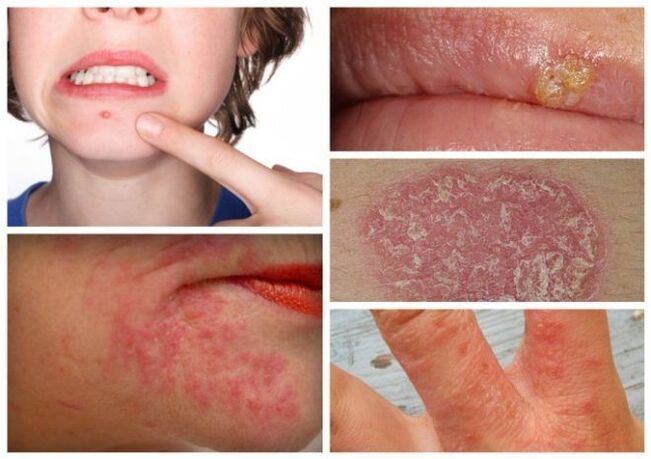How can you tell if there are parasites in your body? Many do not think about such a question, and, of course, in vain. It should be understood that what is in the human body can lead to the development of many diseases that are very dangerous throughout life. That is why it is recommended to undergo preventive examinations and special tests.
General characteristics of parasites
The presence of such living organisms can occur in any part of the body, and the more they are in a particular organ, the worse its general condition. In addition to internal organs, parasitic life activity can be observed in the skin, tissues and mucous membranes. These types of pathogens feed on food consumed by a human being.

There are only 2 types of parasites in the human body, depending on their habitat:
- The vital activity of endoparasites is observed directly in the body itself, ie in the internal organs and systems. These include echinococci, giardia, viruses, various fungi.
- The vital activity of ectoparasites is observed in the surface layer of the body, ie the skin. They absorb blood and human cells. Ectoparasites include lice, ticks, and bed bugs.
The body of an adult is designed to prevent penetration, as well as to eliminate the vital activity of some parasites. For example, when saliva forms in the mouth, enzymes are formed that prevent the worms from multiplying and laying eggs.
In such cases, the activity of such enzymes is destructive. The protective function is performed by the acidic environment of the stomach, as well as human immunity. In a child, the protective barrier against parasites may simply not work, which can be explained by an immature immune system. It is a weak immunity that causes pathogens to penetrate and multiply.
According to numerous studies, some types of parasites do not tolerate the body's protective barrier, enter it and destroy it without obvious symptoms and signs. The duration of the incubation period (the first signs of entry into the body) can reach several years, during which time a person leads a normal life without the presence of parasites.
There are several ways to find out if there are parasites in the body, but first you need to carefully monitor your health, not to ignore any, even the slightest changes and symptoms, and contact a specialist immediately.
Diseases and pathological conditions that indicate the presence of parasites in the body
You can check for parasites in the body with the following signs and symptoms:
- stool disorders. This often includes constipation and diarrhea. If the parasites are localized in the bile or intestinal ducts and block them with their large size, it can cause rare and difficult bowel movements. Some pathogens can produce a hormone-like substance that often causes diarrhea. Thus, diarrhea is not only a protective reaction of the body against the consumption of "wrong" foods, but also a sign of a parasitic infection in the body.
- Flatulence. Increased flatulence and bloating are symptoms of parasites in the small intestine that cause the development of inflammatory processes. Symptoms of flatulence will be observed until the person recovers from the worms.
- "Irritable bowel". A similar syndrome is the result of irritation of the intestinal wall by parasites and the resulting inflammatory process. At the same time, there are various symptoms of disorders of the gastrointestinal tract, reduced absorption of all nutrients, including fat. If the fat cannot be absorbed by the small intestine, it begins to penetrate the colon, causing cramps, constipation and diarrhea.
- Joint and muscle pain. Often, parasites are localized in muscles and joints, causing pain that a person confuses with arthritis.
- Allergic reaction. With the excessive release of toxins by worms, the immune response is activated in the body by the production of increasing doses of protective cells - eosinophils. Such cells cause the development of inflammatory processes in the tissues, thereby causing an allergic reaction.
- Skin pathologies. In such cases, the symptoms can be expressed by urticaria, various types of rashes, eczema, skin lesions, tumors, papillomas. Skin damage with worms in the intestines can occur with the appearance of acne, seborrhea, various spots, wrinkles.
- Chronic fatigue. Symptoms in this condition include: persistent general malaise, apathy, depression, poor memory. Such symptoms can be explained by impaired absorption of nutrients from food.


Diagnosis of parasites in the body
It is not enough to identify the obvious signs of parasites. It is also necessary to confirm their presence and therapeutic methods. How to identify parasites in the human body under stationary conditions? These can be determined with the help of both laboratory and equipment. Laboratory methods for diagnosing worms include:
- Microscopy. The most common way to detect worms. At the time of diagnosis, human feces are examined for the presence of eggs of such organisms. It is not always possible to identify worm eggs after the first analysis. In some cases, several procedures are required.
- Serological research. Over the years, this study has become one of the most popular methods for testing blood for antibodies and antigens against various infections. In any case, human immunity will respond to pathogenic microorganisms that penetrate it. This type of diagnosis includes tests such as immunofluorescence reaction, polymerase chain reaction, enzyme immunoassay.

Hardware methods for diagnosing parasites in the body include:
- Ultrasound examination of the body for echinococcus.
- X-ray examination to detect parasites, for example, in the lungs.
- Endoscopy and biopsy. Similar types of diagnostics are prescribed to detect helminths in the internal organs, and then a tissue sample is taken for examination.
Removal of parasites from the body
Learned how to determine the presence of parasites in the body. Now it is worth considering ways to eliminate them. Treatment of parasitic infection is carried out in 3 stages.
Step 1 - Preparation
During this period, the human body must be ready for basic treatment:
- is prescribed to take sorbents that help cleanse the body and reduce the symptoms of intoxication;
- It is worth noting preparations based on choleretic substances, sandy immortal flowers and extracts of cattle bile;
- you can drink decoctions of herbs such as St. John's wort, wild rose, valerian during the day to relieve spasms;
- Enzyme preparations are also recommended.
Stage 2 - Deworming
The main antiparasitic therapy is to take a special drug prescribed by a specialist. Dosage should be determined only by a physician, as such drugs are quite toxic and can be dangerous to health when the required amount is exceeded.
Often biologically active supplements are also used, the components of which are bitter herbs that have an antihelminthic effect on the body. Supplements have fewer side effects and do not cause dysfunction of an organ such as the liver.
Stage 3 - Recovery period
In this case, it is necessary to take probiotics and prebiotics to restore the normal functioning of the gastrointestinal tract. It is also recommended therapy with vitamin complexes, enzymes, hepatoprotectants that will help normalize the function of organs such as the liver, gallbladder and pancreas.
Not only complex treatment will help to get rid of parasites in general, but also the negative consequences of their life activities.






































